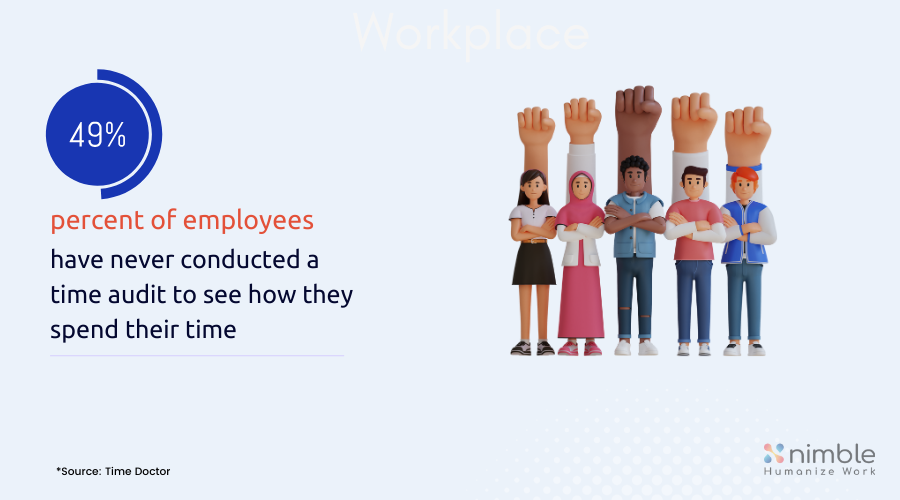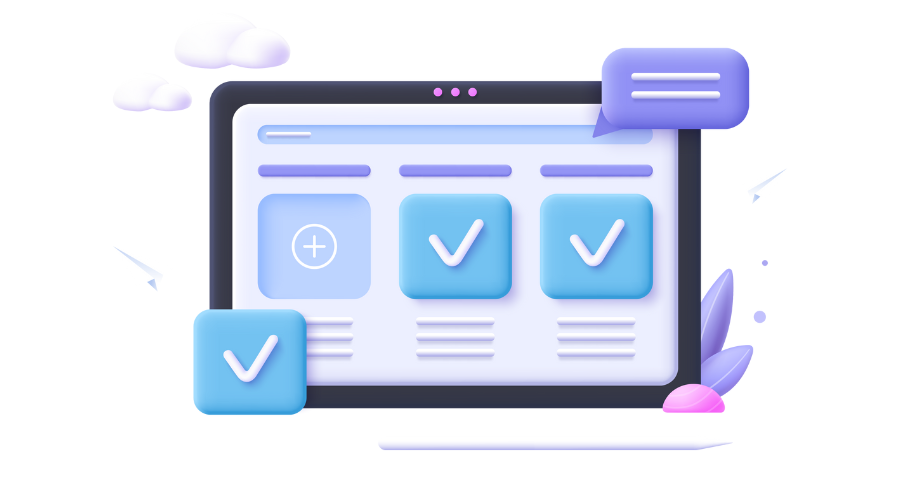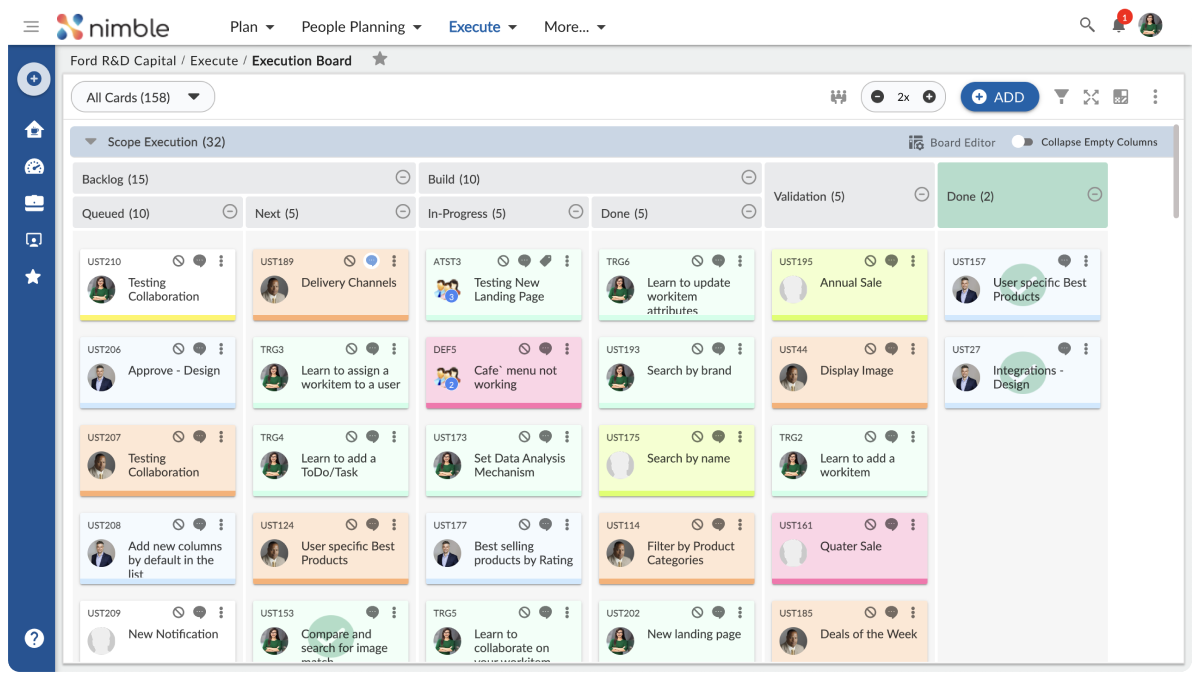Everyone has the same amount of hours in the day so why is it that some people seem to achieve a lot and others don’t? Time management skills can help you work more efficiently and stay organized, whatever your role. If you’re in a leadership position, modeling good time management skills in the workplace can help others in the team build their own skills too.

Can you Really improve your Time Management?
Being better at time management sounds like something we should all aspire to, but is it really possible?
Yes, we believe it is! If you are prepared to change some habits and really study how you work, you can make small shifts that help you use your time in different ways. And it pays off because you’ll be less stressed and achieve more, which should make you feel like you’re making more of a contribution to the workplace.
We should add that just because it’s possible doesn’t mean it is easy. Everyone’s brain works differently, and some people will find it harder to adopt ‘standard’ time management good practices, even if you model them. Others might need a clock in the room, or an agenda broken down by time slots to help them stay on track, so while we’ve shared some simple tips below, be aware that what your personal approach to time management may look like (or that of your colleagues) could be quite different.
Tried-and-tested Time Management Tips
Ready to improve time management skills for yourself and your team? These are our 12 tried-and-tested tips that we use ourselves!
1. Prioritize
Make sure you are working on the most important tasks first. It sounds simple, but think about what you spent time on yesterday. Did you work on the priority tasks first? Often, we see people spending the first part of their day checking emails and that is rarely your most important task for the day.
2. Schedule time to do work
According to research by Microsoft, 68% of people say they don’t have enough focus time during the workday due to the overhead of having to communicate – in other words, they could be spending too much time in meetings.
Block time in your calendar to do your project work and don’t assign yourself at more than 80% to allow for non-project meetings and similar activities that can’t be directly attributed to your projects.
3. Check your deadlines
It’s really important to know when tasks have to be completed by so you can check in with yourself and others and make sure they are started in good time. Plan backwards from the due date so you have enough time to get everything done by the deadline.
4. Analyze how you spend your time
Avoiding distractions and procrastinating is easy to say but hard to do! Nearly 35% of project managers say procrastination is their biggest productivity saboteur.
Track your time for a couple of days and see where it is going. Say no to meetings you don’t need to attend and limit your social media use — that will go a long way to giving you back hours in the day for productive tasks.
5. Have breaks
People are more productive when they aren’t working into the small hours. Schedule down time and take it, both small breaks in the day and also vacation time. Model that behavior so your team can see that it’s OK to have time away from the office to switch off.
6. Be realistic about what you can achieve
You’re honestly not going to write a 20,000 work report for a client in a day, or get a policy written and issued because you need input from other people. Look at governance points, committee meetings and make sure you can get your business cases and papers submitted to those groups in advance so you don’t miss approval deadlines.
Break larger tasks into smaller ones and track progress in your work management software so you can see what is reasonable to complete in a single day.
7. Delegate
As a leader there might be things you can delegate to others. That frees up time in your day and may help another colleague develop their own skills in a new area.
However, make sure you are delegating within the boundaries of your job and not simply offloading all the work you don’t have time (or want) to do. Spend time with the colleague helping them understand the task. It might take you both a bit longer the first time as they get to grips with new work but next time it will save you time.
8. Know where to find things and people
You might have heard the statistic that workers spend 2.5 hours a day looking for things. That’s from an old study and is not necessarily a statistic that’s particularly robust as Martin White points out in his analysis, but the point still stands. If you can’t find files easily, you will have to look for them.
Create document filing systems that work for your brain so you don’t waste time looking for files. Store all relevant project documentation and conversations in your software so everything is together and the right people have access.
9. Plan contingency time
Sometimes things happen outside your control so factor in some contingency time so you aren’t working right up to the deadline. Plan buffer time around meetings so you’ve got a moment for a quick break or to look out your notes for the next call.
10. Work at your most productive times.
For me that’s early in the day, so I do my hardest, most brainpower-required tasks then. For you it could be later in the day. Work with your body and your energy levels. Check in with how you feel so you manage your attention throughout the day.
11. Keep your software up to date
Keep your software tools updated with the latest progress information and project status so you know what your upcoming tasks are so even if you feel overwhelmed. Good work management software is your north star to guide you back on track.
Put some time aside to learn about new features when they are released because being a power user will save you time in the long run!
12. Automate what you can
Use workflows and AI-powered tools to help save you time. Define business rules to standardize processes and use integrations to reduce the effort of sharing data between multiple systems.
The more you can automate and standardize, the more time you and your team will have to focus on value-adding activities instead.
Ready to supercharge your professional time management skills?
While there’s no magic wand to add more hours to your day, Nimble can empower you with effective project management tools that streamline workflows and enhance productivity. By leveraging Nimble’s features, such as task prioritization, automated reminders, and collaborative features, you can optimize your time management practices and maximize efficiency for both yourself and your team. Experiment with different techniques and systems until you find what works best for you, and watch as your productivity soars.






